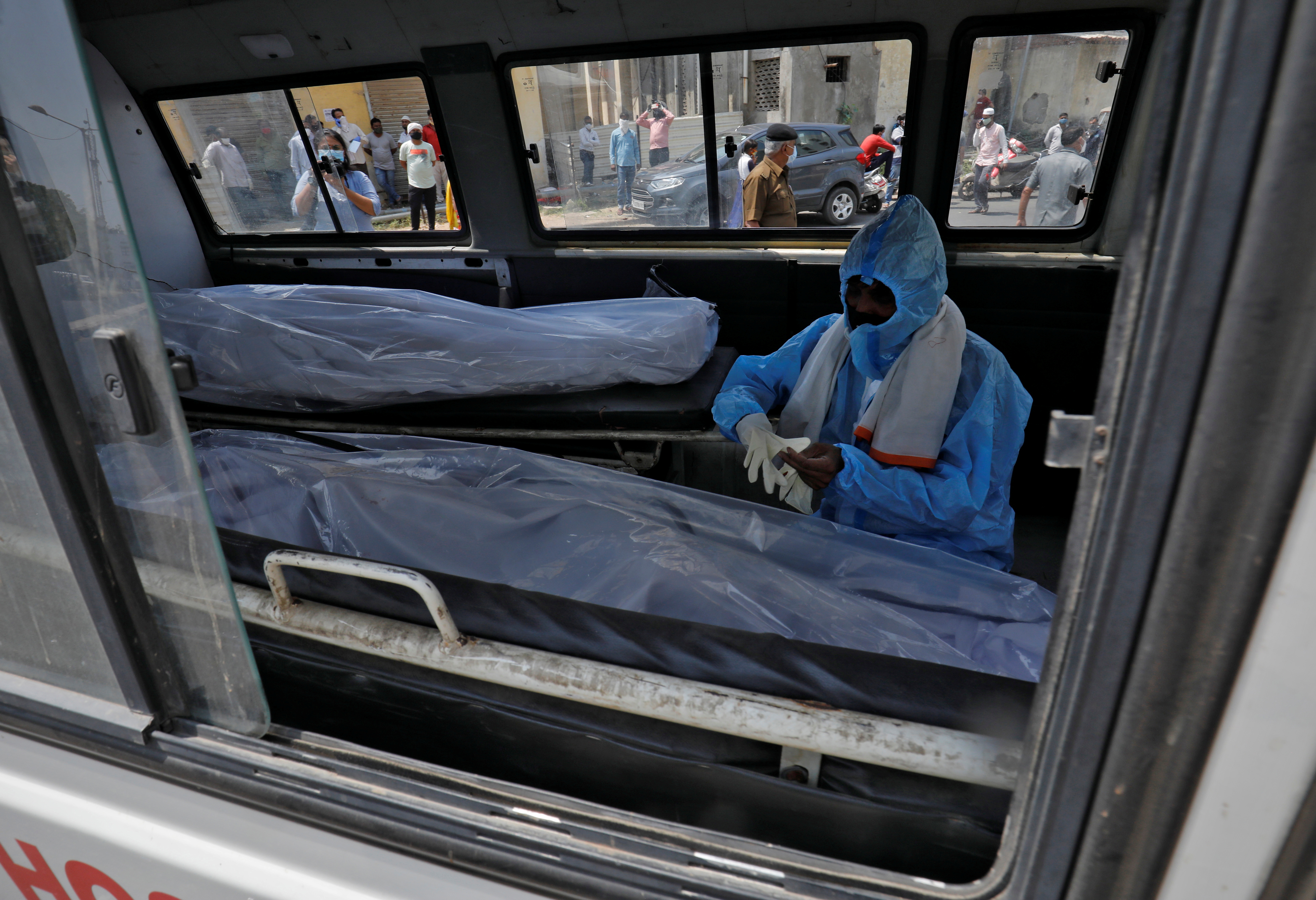
India and Thailand on Thursday reported record cases of coronavirus as a new wave of infections, combined with a shortage of hospital beds and vaccines, threatens to slow Asia’s recovery from the pandemic.
India broke 200,000 daily infections for the first time on Thursday and the Mumbai financial center went into a shutdown as many hospitals reported shortages of beds and oxygen supply.
“The situation is horrible. We are a 900-bed hospital, but there are about 60 patients waiting and we have no room for them,” said Avinash Gawande, an official at Government Medical College and Hospital in Nagpur, a commercial hub in Maharashtra. .
The increase was the seventh record daily increase in the last eight days and brings the total case load to 14.1 million, second only to the United States.
Hundreds of thousands of pilgrims gathered on Wednesday for a religious holiday in the north of the country, sparking fears of another increase in COVID-19 cases.
The rise in infections has also put pressure on Manila and Bangkok’s healthcare system.
The Philippines has seen many hospitals in its capital region, home to about 13 million people, fill up as cases increase. Only confirmed cases of coronavirus in the last 30 days reached 266,489, representing 30% of the total infections in the country.
Some families of patients with COVID-19 have gone on social media to share their evidence in the search for hospitals. Some traveled outside the capital to find a health center or spent long hours in line.
Thailand on Thursday reported 1,543 new cases of coronavirus, the strongest increase since the start of the pandemic and the fourth-largest increase this week. Read more
The rise has increased hospital bed occupancy rates, as all positive cases must be admitted to care according to Thai standards. A total of 8,973 patients are being treated.
Although the country is considering closure measures, its neighbor Cambodia imposed a closure on its capital and a satellite district on Thursday, as an outbreak that began in late February caused cases to increase by almost tenfold. to 4,874 in two months. Read more
Bangladesh also began a one-week shutdown on Wednesday with strict restrictions, as infections have reached about 7,000 cases a day in the past two weeks, down from 300 in February.
VACCINE CLIMBING
As the divide between developed and developing countries’ access to COVID-19 vaccines widens, the head of the World Trade Organization (WTO) on Wednesday urged vaccine manufacturers to increase transfer. of technology to provide manufacturing capacity.
Thailand, for example, vaccinated 0.4% of its population, following neighbors, such as Singapore, with 14.6%, according to a Reuters estimate.
Ngozi Okonjo-Iweala, who became director general of the WTO in March, also called on its members to reduce restrictions on vaccine exports and work to facilitate logistical and customs procedures.
In Australia, which abandoned its inoculation target earlier this week following shipping delays and recently imposed restrictions on the use of the AstraZeneca (AZN.L) shot, a leading medical association is opposed a government plan to create mass inoculation centers, which mentioned logistical challenges. Read more
“Workforce needs to be found from somewhere and we are not aware of the large number of registered nurses and doctors who are available to manage these centers,” the president of the Australian Medical Association told local radio ( AMA), Omar Khorshid.
Japan, whose inoculation rate has been hit by a tight supply, could cancel this year’s Olympics in Tokyo if the coronavirus crisis becomes too severe, a senior party official said on Thursday. ruling, less than 100 days before the scheduled start of the games. Read more
“If it seems impossible to do more, we must stop decisively,” Toshihiro Nikai, general secretary of the Liberal Democratic Party, told TBS.
Japan is facing rising coronavirus infections, with rising trends in Tokyo after the government ended the state of emergency and Osaka suffered a record number of cases.
Our standards: the principles of trust of Thomson Reuters.